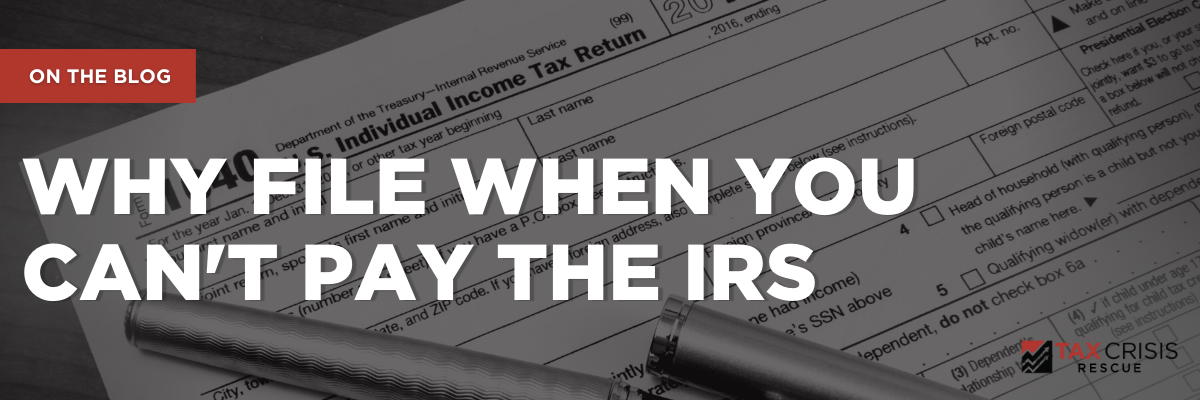Lately, there has been an increased focus on the importance of filing all required tax returns, including those from prior unfiled years. Most of us are acutely aware of the recent increased spending by our federal government; consequently, our leaders are pressured to find ways to pay for the spending. In addition to raising taxes on those who are more able to bear the burden, there is also heightened attention on non-filing taxpayers whose incomes exceed $100,000.
IRS SB-SE Commissioner Eric Hylton said, “Our pursuit of these high-income non-filers provides an important service and shows respect to the majority of Americans who pay their taxes.” [Forbes, December 2020, IRS Doubles Down on Pursuing High-income Non-filers, Josh Ungerman] Despite the prolonged delay caused by the COVID-19 pandemic, IRS will soon be targeting non-filers to collect both their tax returns and delinquent tax debt.
Non-filers who voluntarily come into compliance are typically subjected to much less scrutiny than those who need to be sought out and compelled to comply. Any taxpayer who continues to avoid dealing with unfiled returns is creating increased trouble every day this avoidance is prolonged.
Other than escaping excessive scrutiny, there are other benefits to filing compliance. Two types of IRS penalties of concern to individual taxpayers are the failure to pay penalty, and failure to file penalty.
The failure to pay penalty is calculated by adding 0.5% of the unpaid amount per month to your account.
The failure to file a penalty is calculated by adding 5% of the unpaid amount per month. So, the failure to file a penalty is 10 times more than the failure to pay a penalty.
What if you have no records to file the return with?
You may be under the untrue assumption that you cannot file a return. I am happy to inform you that these records are available even if they aren’t in your possession. The IRS can produce a document called a wage and income transcript for every taxpayer. It shows nearly everything you will need in order to file the return. The rest of the information can be collected elsewhere, like from your bank and credit card statements.
Statute of Limitations
The filing of a tax return begins the statute of limitations process. The statute for assessment is the amount of time the IRS is allowed by law to assess a tax, which is the later of three years from the date that the return is filed, or the due date of the return. Once assessed, the IRS then has a 10-year statute of limitations to collect the tax. If they fail to collect within the 10-year statute, collection is barred by law.
The statute of limitations calculation has caveats that make it difficult to accurately figure out. As a result, the IRS is often incorrect about a taxpayer’s statute of limitations date, making the IRS think there is still time to collect the tax when legally they cannot. Although no one knows for sure, the estimate is that 40% of the statute dates calculated by the IRS are wrong. This quagmire within the system has helped taxpayers avoid trouble.
Do I still get a refund from the IRS?
What if you were due a refund but did not file? Obviously, you will not get the refund, and you are also subject to a statute of limitations. The refund statute of limitations is the latter of three years from the date the return was filed or two years from the date the tax was paid. If you did not file a return, then the statute of limitations is two years from the date the tax was paid. If you do not file a return within this timeframe and are due for a refund, you are barred from receiving it. In this instance, you have just made a generous donation to your federal government. Taxpayers are often surprised to find out that a refund is available.
If you are unsure how many tax returns are unfiled or how to recover the information required to file the returns, reach out to us to schedule a free 40-minute consultation to discuss your situation in additional depth.

